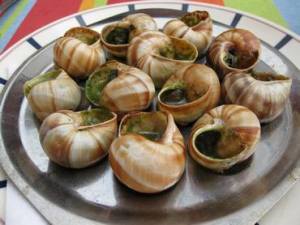Different planets, different food. In the movie “Galaxy Quest”, when the crew is served their first meal on the Thermian replica of the Protector, Alexander, the crew’s medical officer, is served food from his character’s home planet. At first glance, he is quickly disgusted by it, and would not try the food. He seems like the type of person that would judge something by its appearance before actually trying it.
Just like in the movie, we have many different cultures with various kinds of cuisine and food. But many people like Alexander, judge food by its look and/or smell before actually even tasting it. This causes most people to turn the food away and refuse to try it. But why do people judge things so quickly before trying it? If you were starving like the soldiers during WWI, would you be so quick to turn away edible food? Soldiers from WW1 had very small rations and poor meals. The food they had was barely enough to keep them alive. Their main focus was to not die, not whether or not their seemed disgusting or had a funky odor to it. If only people were more open to new things and is not so quick to judge. They should think back to the starving soldiers whenever they’re deciding on whether or not they should try something new, to give them that open mindset. More people would be open to trying new food this way. There has to be at least one dish or food that you like from each culture. Why else would other people from those cultures eat that food? Different people have different preferences. You would not like it if someone else said what you ate was disgusting, foul, nasty, horrible, or stinky, would you? Although some of these descriptions are true to the outer appearance of the dish, the actual taste might be the complete opposite of what you expect. Sure, it might have a horrible odor like stinky tofu from China,
or slimy like escargot from France,
but you should try it once before labeling it as something awful for the rest of your life. How could you judge something from its appearance? Just like the phrase,” you shouldn’t judge a book by its cover”, you shouldn’t also judge food by its appearance. To the people of these different cultures, these foods that seem odd to you are normal to them. The Thermians in the movie set a good example for others to follow. They are open to new ideas, cultures, and food. By copying what they say from the “historical documents” from Earth, they were able to improve their own lives. Just like, if you tried something new or exotic, that dish could turn out to be one of your new favorite foods. I hope people would keep a more open mindset when trying out new things. This doesn’t just apply to food though. People should be open to trying out everything. Different cultures, different food.
-Tom







